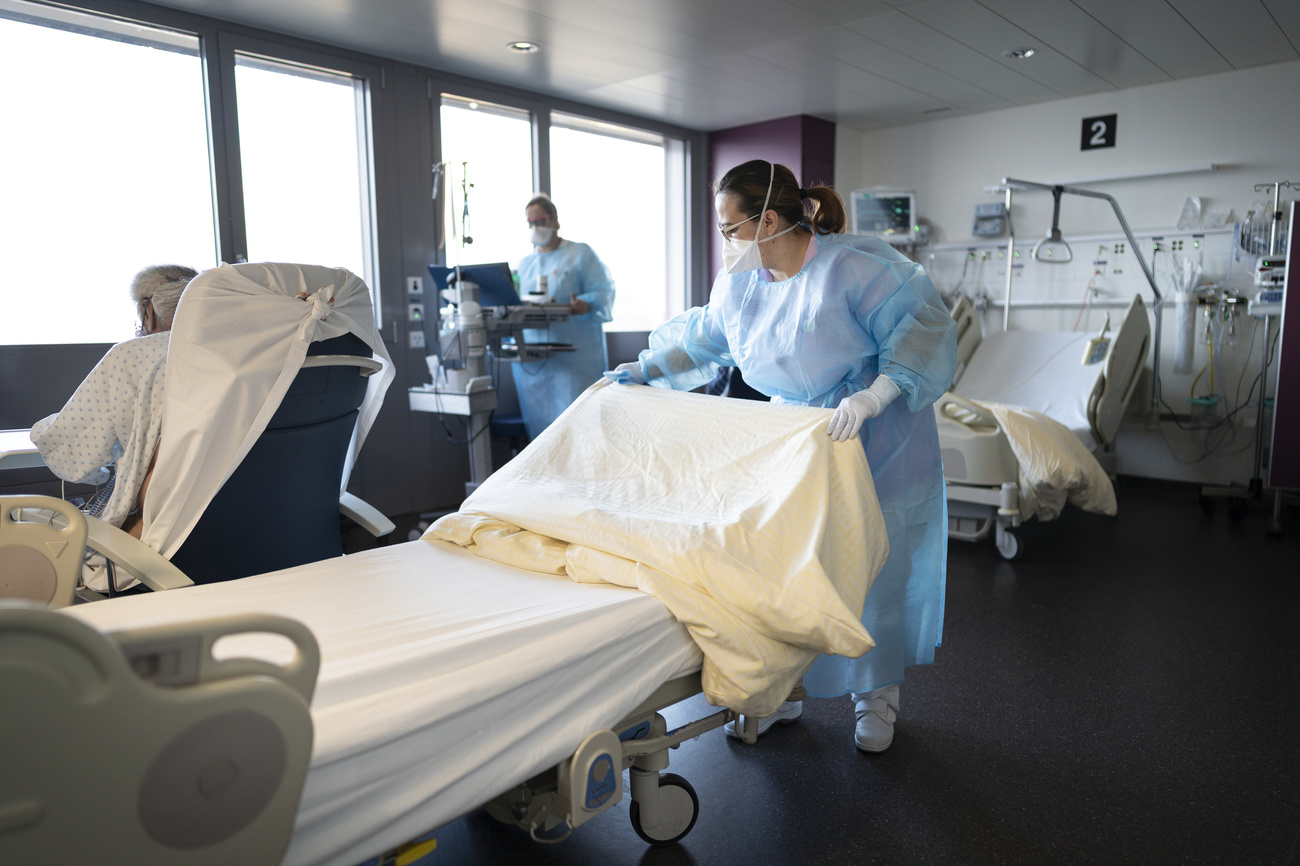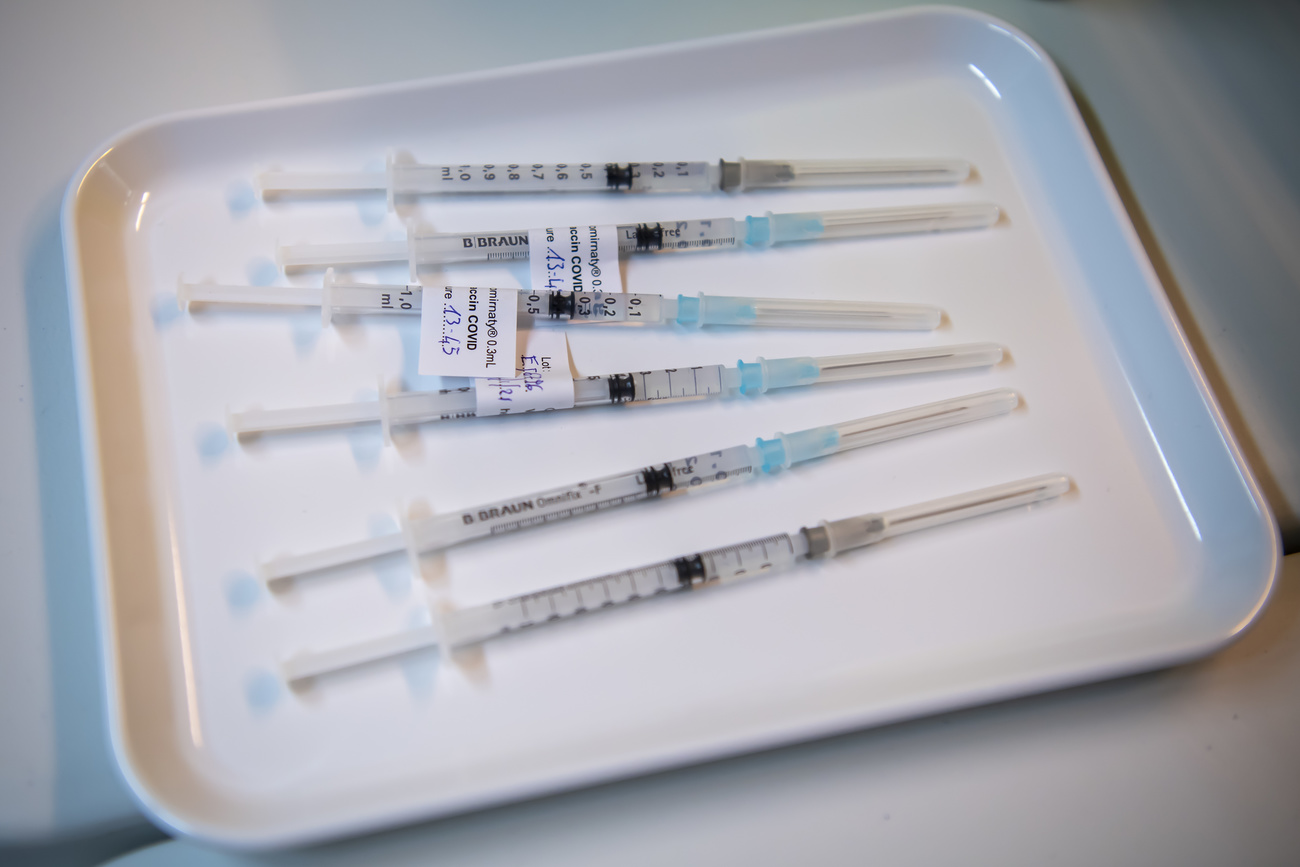
Fewer serious Covid cases in Switzerland than expected

Health experts say they are cautiously optimistic as the number of new Covid infections in Switzerland appears to stagnate.
However, they say the real number of infections might be three times higher than officially confirmed due to undetected or non-reported cases.
“We can be reasonably optimistic,” said Virginie Masserey of the Federal Office of Public Health at a news briefing on Tuesday.
She said it was possible that the Omicron wave has peaked in Switzerland, but she warned it was too early to lift the current health precautions as a further increase in infections can’t be excluded.
Official figures show 29,142 new Covid cases over the past 24 hours, and merely a 1% increase in the seven-day average.
The number of hospital admissions due to Covid is stagnating, while number of patients in intensive care is decreasing slightly.

More
Coronavirus: the latest numbers
Omicron and Delta variants
She said there are growing indications that the Omicron variant is easier to cope with compared with the Delta variant.
In the same vein, Rudolf Hauri, senior official of the cantonal health authorities, said he was surprised at the latest data. “I had also expected to see higher figures,” he said.
The statements are in marked contrast to a scenario presented by the Covid science task force last week. Based on calculations it had warned of a steep rise in hospitalisations.
The government decided to shorten the quarantine and isolation periods for infected people or those in close contact with them. It also proposed extending current anti-Covid measures until the end of March.
Following a consultation among the 26 cantons in charge of implementing health regulations and other institutions, the government is expected to discuss the current Covid policy on Wednesday.

In compliance with the JTI standards
More: SWI swissinfo.ch certified by the Journalism Trust Initiative
















![The four-metre-long painting "Sonntag der Bergbauern" [Sunday of the Mountain Farmers, 1923-24/26] had to be removed by a crane from the German Chancellery in Berlin for the exhibition in Bern.](https://www.swissinfo.ch/content/wp-content/uploads/sites/13/2025/12/01_Pressebild_KirchnerxKirchner.jpg?ver=bb19e376)














You can find an overview of ongoing debates with our journalists here . Please join us!
If you want to start a conversation about a topic raised in this article or want to report factual errors, email us at english@swissinfo.ch.